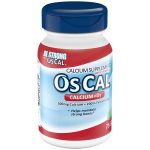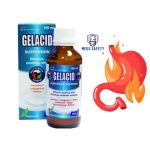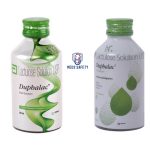Echinaforce: Uses, Benefits, Dosage, Side Effects, Interactions

Echinaforce is a herbal supplement derived from the herb Echinacea purpurea. Echinacea has traditionally been used to support the immune system and promote overall health and well-being. Echinaforce is manufactured by A.Vogel, a Swiss company specializing in natural health products. A.Vogel is well-known for its herbal remedies and has been producing Echinaforce for several decades.
Echinaforce is available in various dosage forms. The specific forms and availability may vary depending on the manufacturer and region. Here are some common Echinaforce dosage forms:
1. Tablets: Echinaforce tablets are one of the most common dosage forms. They typically contain standardized extracts of Echinacea and are taken orally with water.
2. Drops: Echinaforce drops are liquid formulations that usually come in a bottle with a dropper for precise dosing. The drops are usually mixed with water or another beverage before consumption.
3. Tinctures: Echinaforce tinctures are liquid extracts of Echinacea. They are made by soaking Echinacea plant parts in alcohol or a mixture of alcohol and water. Tinctures are typically taken orally, often diluted with water or juice.
4. Capsules: Echinaforce capsules contain powdered Echinacea extract or a combination of Echinacea plant parts. They are taken orally with water and provide a convenient and consistent dosage.
5. Lozenges: Echinaforce lozenges are dissolvable tablets designed to be slowly dissolved in the mouth. They are often used for soothing the throat and providing immune support.
It’s important to note that the specific dosage forms and availability of Echinaforce may vary depending on the region and manufacturer. It’s advisable to follow the instructions provided by the manufacturer or consult with a healthcare professional or pharmacist for accurate dosage guidelines and recommendations for the specific Echinaforce product you are using.
Uses
Echinaforce is commonly used for:
- Immune Support: Echinaforce are often used to support the immune system. Echinacea is believed to enhance immune function and promote the body’s natural defense mechanisms. It may help strengthen the immune system’s response to common infections and illnesses.
- Cold and Flu Relief: Echinaforce are commonly used as a natural remedy for relieving symptoms associated with the common cold and flu, such as nasal congestion, sore throat, and cough. While the effectiveness of Echinacea for cold and flu relief is still a topic of debate, some studies suggest that it may help reduce the severity and duration of symptoms.
- Respiratory Health: Echinaforce are sometimes used to support respiratory health. They may help alleviate symptoms of respiratory tract infections, such as bronchitis or sinusitis. However, it’s important to consult with a healthcare professional for appropriate diagnosis and treatment of respiratory conditions.
- General Wellness: Echinaforce are taken by some individuals as a general health tonic. They are believed to promote overall well-being and vitality by supporting various bodily systems, including the immune system.
Echinaforce dosage
The recommended dosage of Echinaforce can vary depending on the specific product and manufacturer’s instructions. It’s important to carefully read the packaging or consult with a healthcare professional or pharmacist for accurate dosage guidelines. However, here are some general dosage recommendations:
1. Adults: The typical recommended dosage for adults is 20 drops (approximately 1 mL) of Echinaforce Drops, diluted in a small amount of water or another beverage. This dosage is usually taken 2 to 3 times daily.
The typical recommended dosage of Echinaforce tablets for adults is usually 1 to 2, taken orally, per day. This dosage can vary based on the specific product and concentration of the tablets.
2. Children: ages 4 – 12 should use 10 drops daily in a little water or one tablet daily with water. Or one Echinaforce Junior chewable tablet daily while children between the ages of 2 – 4 years should take one Echinaforce Junior chewable tablet daily.
The dosage for children can vary based on age and weight. It’s important to follow the specific instructions provided by the manufacturer or consult with a healthcare professional for appropriate dosing recommendations for children.
It’s important to note that individual responses to Echinacea can vary, and it’s always best to follow the instructions provided by the manufacturer or seek guidance from a healthcare professional. They can take into account your specific health needs, age, and any underlying medical conditions to provide personalized dosage recommendations.
Additionally, it’s advisable to use Echinaforce for a limited duration, typically for a maximum of 10 days. If you are considering long-term use or have any concerns, it’s best to consult with a healthcare professional for guidance.
Remember to carefully read the packaging and follow the instructions provided by the manufacturer or consult with a healthcare professional for accurate and personalized dosage recommendations.
Is Echinaforce safe for babies?
No, the safety of Echinacea for babies is not well established, and it is generally not recommended for use in infants under the age of 12 months. The developing immune system of infants may not respond to Echinacea in the same way as older children or adults.
It’s important to consult with a healthcare professional or pediatrician before giving any herbal supplement, including Echinacea, to a baby. They can provide personalized advice based on the age, health status, and specific needs of the baby.
For infants and young children, it is generally recommended to focus on appropriate nutrition, breastfeeding (if applicable), maintaining a clean and healthy environment, and following the guidance of healthcare professionals for managing any health concerns.
If your baby is experiencing symptoms of illness, such as a cold or respiratory infection, it is best to seek medical advice from a healthcare professional. They can provide appropriate recommendations for managing your baby’s symptoms and ensuring their well-being.
Always prioritize the safety and well-being of your baby and seek guidance from healthcare professionals for any concerns or questions related to their health.
How often to take Echinaforce?
The frequency of taking Echinaforce can vary depending on the specific product and manufacturer’s instructions. It’s important to carefully read the packaging or consult with a healthcare professional or pharmacist for accurate dosage and frequency guidelines. However, here are some general considerations:
Echinaforce Benefits
Echinaforce, derived from the herb Echinacea purpurea, is believed to offer several potential benefits. Here are some commonly attributed benefits of Echinaforce:
1. Immune Support: Echinaforce is often used to support and strengthen the immune system. It is believed to stimulate the body’s natural defense mechanisms, helping to prevent and fight off common illnesses, such as colds and flu. Echinacea is thought to enhance the activity of immune cells, promoting a more robust immune response.
2. Cold and Flu Relief: Echinaforce is commonly used as a natural remedy to relieve symptoms associated with the common cold and flu. It may help reduce the severity and duration of symptoms such as nasal congestion, sore throat, and cough. However, the scientific evidence regarding its effectiveness for cold and flu relief is mixed, and individual responses may vary.
3. Antioxidant Properties: Echinaforce contains antioxidants that help protect the body against damage caused by free radicals. Antioxidants play a role in reducing oxidative stress and inflammation, which can contribute to overall health and well-being.
4. Respiratory Health: Echinaforce is sometimes used to support respiratory health. It may help alleviate symptoms associated with respiratory tract infections, such as bronchitis or sinusitis. However, it’s important to consult with a healthcare professional for appropriate diagnosis and treatment of respiratory conditions.
5. Anti-inflammatory Effects: Echinacea has been studied for its potential anti-inflammatory effects. It may help modulate the body’s inflammatory response, which can be beneficial for managing certain conditions or promoting overall wellness.
Echinacea Side Effects
Echinacea is generally considered safe for most people when taken as directed. However, like any herbal supplement, there is a potential for side effects. Here are some possible side effects associated with Echinacea:
1. Allergic Reactions: Some individuals may experience allergic reactions to Echinacea, especially if they have known allergies to plants in the daisy or Asteraceae family, such as ragweed or marigold. Allergic reactions can manifest as skin rashes, itching, swelling, or difficulty breathing. If you experience any signs of an allergic reaction, discontinue use and seek medical attention immediately.
2. Gastrointestinal Upset: In some cases, Echinaforce can cause gastrointestinal symptoms such as stomach upset, nausea, vomiting, or diarrhea. These symptoms are generally mild and transient. It’s advisable to take Echinaforce with food to reduce the likelihood of gastrointestinal issues.
3. Immune Stimulation: Echinaforce is known for its immune-enhancing properties. While this is generally beneficial, in some rare cases, excessive immune stimulation may lead to autoimmune reactions or exacerbation of autoimmune conditions. If you have an autoimmune disorder, it’s important to consult with a healthcare professional before using Echinaforce.
4. Interactions with Medications: Echinaforce may interact with certain medications, including immunosuppressants, medications metabolized by the liver, and drugs that affect the cytochrome P450 enzyme system. It’s important to inform your healthcare provider about all medications you are taking, including herbal supplements, to avoid potential interactions.
5. Other Potential Side Effects: Other less common side effects reported with Echinaforce use include dizziness, headache, insomnia, and muscle aches. If you experience any unexpected or severe side effects, discontinue use and consult with a healthcare professional.
It’s important to note that the safety and tolerability of Echinaforce can vary among individuals. If you have any underlying health conditions, are taking medications, or are pregnant or breastfeeding, it’s advisable to consult with a healthcare professional before using Echinaforce.
Always follow the recommended dosage of Echinaforce, and if you experience any adverse reactions or concerns, it’s best to discontinue use and seek medical advice.
Is it OK to take Echinaforce every day?
No, while Echinaforce is generally considered safe for short-term use, it’s typically not recommended to take Echinaforce every day for prolonged periods without breaks. Continuous long-term use of Echinacea may lead to a decrease in effectiveness or potential side effects.
Echinaforce is often used to support the immune system during acute illnesses, such as colds and flu, or for short periods to enhance immune function. It is typically used for a maximum of 10 days at a time.
If you wish to use Echinaforce regularly for immune support, it’s generally advisable to follow a pattern of intermittent usage, such as taking it for a few weeks, then taking a break for a few weeks before starting again. This can help prevent the body from becoming overly dependent on the herb and maintain its effectiveness.
It’s important to note that individual responses to Echinaforce can vary, and it’s always best to consult with a healthcare professional for personalized guidance. They can consider your specific health needs, any underlying medical conditions, and other medications you may be taking to provide appropriate recommendations for Echinacea usage.





